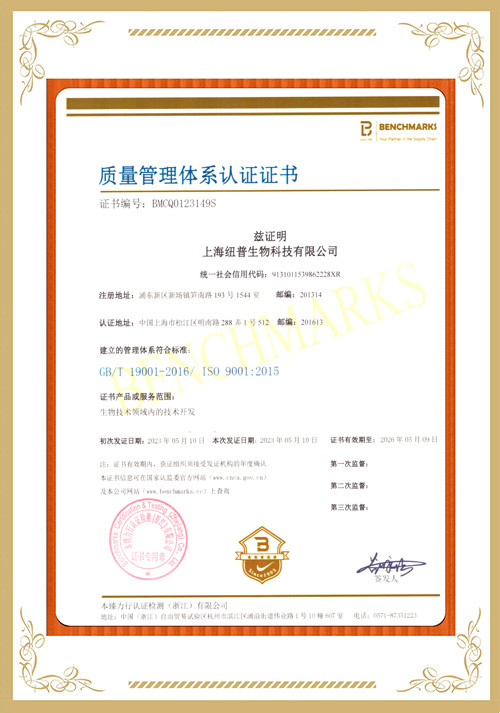- 蛋白种属:甲型H1N1流感
- 表达宿主:人胚胎肾细胞(HEK293)
- Unitprot ID:C3W6H7
产品详情
-
产品名称
重组甲型H1N1流感HA蛋白
-
蛋白种属
甲型H1N1流感
-
表达宿主
人胚胎肾细胞(HEK293)
-
Unitprot ID
-
克隆构建
A DNA sequence encoding the extracellular domain of the influenza A H1N1 (A/Ohio/07/2009 (H1N1)) hemagglutinin (ACQ63286.1) (Met 1-Gln 529, HA1+HA2, uncleved), was fused with a C-terminal polyhistidine tag.
-
蛋白纯度
> 95 % as determined by SDS-PAGE
-
分子量
The secreted recombinant influenza A H1N1 hemagglutinin (A/Ohio/07/2009 (H1N1)) comprises 523 amino acids and has a predicted molecular mass of 59 kDa. As a result of glycosylation, the apparent molecular mass of the protein is approximately 70-80 kDa in SDS-PAGE under reducing conditions.
-
蛋白别名
AF093576; RASH1; HRAS1; P21RAS; IHJ; AI451697; NMF4; SPNA1; C-HA-RAS1; SPH; C-H-RAS; HA; CTLO; SPNA-1; C-BAS/HAS; H-RASIDX; HAMSV
-
蛋白全名
Hemagglutinin
-
蛋白描述
Binds to sialic acid-containing receptors on the cell surface, bringing about the attachment of the virus particle to the cell. This attachment induces virion internalization of about two third of the virus particles through clathrin-dependent endocytosis and about one third through a clathrin- and caveolin-independent pathway. Plays a major role in the determination of host range restriction and virulence. Class I viral fusion protein. Responsible for penetration of the virus into the cell cytoplasm by mediating the fusion of the membrane of the endocytosed virus particle with the endosomal membrane. Low pH in endosomes induces an irreversible conformational change in HA2, releasing the fusion hydrophobic peptide. Several trimers are required to form a competent fusion pore (By similarity).
-
发货形式
Lyophilized from sterile PBS, pH 7.4
1. 5 % trehalose and mannitol are added as protectants before lyophilization.
2. Please contact us for any concerns or special requirements.
-
内毒素
< 1.0 EU per μg of the protein as determined by the LAL method
-
保存条件
Store it under sterile conditions at -20℃ to -80℃. It is recommended that the protein be aliquoted for optimal storage. Avoid repeated freeze-thaw cycles.
重组蛋白定制服务:
纽普生物(NovoPro)提供大肠杆菌、哺乳细胞、昆虫细胞和酵母细胞重组蛋白定制服务
声明:本公司出售产品只能用于科研目的,不得用于诊断或者治疗!



